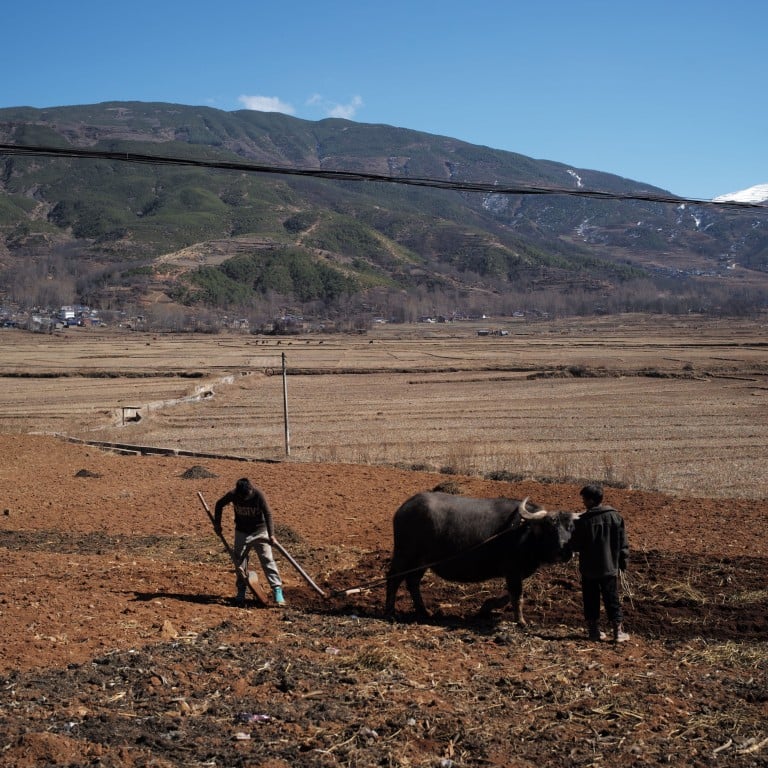
China must act to end the trafficking and sale of women – public outrage is not enough
- An outcry over an abducted woman’s inhuman treatment in Xuzhou led to arrests this time, but the nightmare for thousands of women across China will continue if the authorities don’t take the problem seriously
It is believed that the woman was taken from Yunnan to Xuzhou by a fellow villager surnamed Sang and her husband. Both of them, plus the woman’s “husband”, are now under arrest.
My chest tightened when I first read the story. It was a familiar tale, but still deeply shocking. Over the years, I have reported on half a dozen stories about trafficked brides and even took part in rescue missions. Each trafficked woman suffered untold misery; they were raped, beaten, humiliated and sometimes chained up.
According to data from the National Bureau of Statistics, in 1998, the police dealt with 6,513 cases involving the trafficking of women and children; the figure leapt to 23,163 in 2000 and dropped to 20,735 in 2013. These are just the reported cases.
Why would farmers buy wives? To start with, it is a much cheaper way to obtain a wife. The betrothal gifts and cost of a wedding ceremony in the countryside usually come to between 50,000 and 100,000 yuan (US$8,000-US$16,000), while buying a bride costs about one tenth of that sum, or less.
Even if you have money, there are not enough women of marriageable age around the village. China’s strict family planning policies, combined with a strong preference for boys, have led to an unbalanced sex ratio, especially in poor and backward areas.

Farmers in rural Xuzhou have been buying wives since the 1980s. According to a book that documented wife abduction in China in the 1980s, An Ancient Crime, 48,100 women were trafficked and sold in Xuzhou between 1986 and 1989.
China has strengthened its laws to combat human trafficking. However, weak enforcement and corruption have impeded implementation, according to Cindy Yik-Yi Chu, an academic who has studied human trafficking and smuggling in China.
Several of the rescue missions I followed were not carried out by police, but by Zhu Wenguang, a Sichuan security guard locally known as Zorro. Upset and enraged by the pain endured by the trafficking victims’ families in his village who were unable to get any help from the authorities, he decided to rescue those trafficked women himself. So far, he has freed more than 160 women.
According to him, one of the biggest challenges facing his rescue missions is the overwhelming sympathy towards the buyers from fellow villagers, who believe the buyers had ownership of the purchased wives, as if they were just commodities, not human beings with rights. When he tried to take these women away, the buyers’ family and sometimes the entire village would try to prevent them from leaving.
Bride trafficking, a problem on China’s belt and road
The book An Ancient Crime contains a photograph showing an auction of 12 kidnapped women, each bearing a label with their prices, in a village in Xuzhou. Village cadres helped organise the auction.
The poor protection of women is another problem. In the wake of the Xuzhou drama, some outraged netizens dug out the total expenses of the Xuzhou Women’s Federation, an organisation which is supposed to protect women’s interests. The figure was 30 million yuan in 2020. That’s a lot of money but what, exactly, did it do for a woman chained up for more than 20 years in its jurisdiction? And what about the women’s federation in the village?

More severe laws are certainly needed. In 2019, representatives of the National People’s Congress, China’s top legislature, proposed increasing the penalty of five to 10 years for the abduction and sale of women and children to more than 10 years, even calling for capital punishment.
Authorities need to take the matter more seriously. Apart from these intermittent public campaigns, there should be a constant effort to combat the problem and protect women. Hotlines should be set up; villagers need to be made aware that buying wives is wrong and illegal, and girls should be educated on how to better protect themselves.
Many questions remain unanswered on the Xuzhou case. Given that her eldest child is already over 20, there is a possibility that the woman might have been under age at the time of her “marriage”.
How did they get the marriage certificate? Were her documents properly checked? Were her neighbours and village cadres aware she had been treated in such an inhuman fashion and for so long? Where was the village official in charge of family planning?
The case is extremely sad. If it does spark some positive actions, then the poor woman may take some comfort in that.
Lijia Zhang is a rocket-factory worker turned social commentator, and the author of a novel, Lotus

